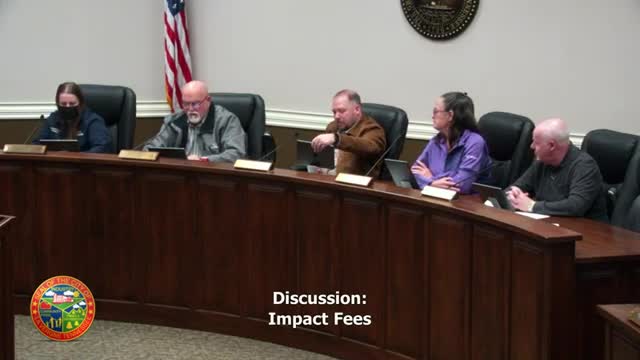La Verne board asks staff to order new impact-fee study after debate over cutting commercial fees
Get AI-powered insights, summaries, and transcripts
Subscribe
Summary
At a Jan. 2 Board of Mayor and Aldermen workshop, members debated lowering commercial retail impact fees but agreed to commission an updated study and leave fees unchanged until it returns, citing legal constraints and potential revenue losses.
At a Jan. 2 workshop, the Board of Mayor and Aldermen discussed a proposal to lower the city’s commercial retail impact fees and directed staff to seek an updated impact-fee study before making changes.
The issue drew more than 20 minutes of discussion because members said commercial fees are significantly higher in La Verne than in neighboring cities, and because lowering fees would reduce revenue that funds road projects.
Vice Mayor Noe pressed for a cut to retail fees to help economic development, saying the board should “really think about lowering it so that’ll give us something to go to” when recruiting retailers. Evan, the city’s legal counsel, told the board that “the impact fees are set by resolution” and that state law requires fees be “reasonably related to the actual cost of doing that new development,” which must be shown by a study. Evan recommended any change be applied across the board or be supported by a new study.
Public-works staff warned of revenue consequences. Michael Dietz, listed in the meeting as a staff member who oversees paving and road budgets, said, “My budget for this year is $900,000,” and asked how lowering fees would affect planned maintenance. Bruce, the city administrator, noted that road impact fees collected in 2024 totaled “just over $1,800,000,” and cautioned that cutting fees to 50% would roughly halve that revenue.
Board members and staff also compared La Verne’s retail fee levels to nearby jurisdictions. Vice Mayor Noe and other members cited figures provided by Tom (economic staff) showing example per-project totals — Brentwood ($132,000), Smyrna ($176,000), Nolensville ($80,000), Spring Hill ($171,000), and Murfreesboro ($150,900) — and said La Verne’s retail charges appeared higher in many comparisons. Board members emphasized those comparisons should be validated in any new study.
Economic-development staff member Graham said the city has lost potential projects over fee levels: “Absolutely. Without question or doubt,” he said when asked if fees affected recruitment. Board members proposed two near-term options: (1) commission a new study and leave current fees unchanged until results arrive, or (2) apply a temporary, limited across-the-board reduction to a specific fee category while awaiting a study. Legal counsel and staff said the safer route, legally and administratively, was to obtain a new study first.
The board asked staff to contact the firm that prepared the previous study to request time and cost estimates for an updated report and to return to the board with that information. Bruce told the board the previous study cost about $70,000–$80,000. The board appeared to coalesce around pausing changes until the new study is complete, with no formal vote recorded at the workshop.
Next steps include staff contacting the previous consultant about timetable and cost and returning options to the board; the board said it wants the new study to compare La Verne with similar jurisdictions (Nolensville, Smyrna, Murfreesboro, Mount Juliet) and to explain why La Verne’s commercial fees differ from neighbors.
